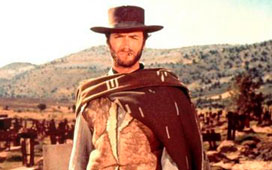

31 March 2016
The Good, The Bad & The Ugly
How Can Psychology Create Effective Marketing?
The likelihood is, for many small-to-medium businesses in the technical arena, you will be marketing services or products to other small-to-medium sized businesses. However, did you realise that to create a truly effective marketing campaign there is a complex psychology that could help you to target your proposition more effectively?
What makes them tick?
Take a moment to think about how you identify your prospects, what you know about the decision makers and the reasoning behind why they make the decisions they do. Particularly within the B2B sector, understanding customers is difficult. This is because it isn’t always easy to know when, how, with what and who to contact.
Historically, businesses have been defined by descriptions that, looking back now, were seriously lacking in value. We take the view that understanding the individual business owners and directors will give a much valued insight into their purchasing behaviour which is then ultimately reflected in their business decisions. Or simply put, the culture of any small business is inextricably linked to the behaviours and values of the people who own and run them.
The ‘trickle-down’ effect
You may not think it but these decisions, needs and attitudes have a significant impact in a small business where the ‘owner managers’ are active in the firm on a daily basis. In our opinion, you need as much information in your arsenal as possible because the small-to-medium sized business sector is a proverbial battleground, with hundreds of businesses competing for the attention of just a few influential people.
To highlight this point, recent research carried out resulted in the identification of three distinctively different business owner types:
- Money Makers
- Passionates
- Experts
- each with their own distinct attitudes and behaviours. It became apparent that these owner types could be found in every type of business in the UK and furthermore, they exhibit the same behaviours irrespective of industry sector.
Money Makers constituted 20% of the SME’s surveyed and consisted of people that willingly suffer poor service in return for a low price.
Passionates made up 40% and are the kind of people that love good service but will give a provider only one chance to get it right. That company must demonstrate a certain level of appreciation and effort in righting a problem that affects the service provided to this group. Passionates are emotional and will be advocates for a brand if they are looked after. More importantly they won’t mind paying for good service.
The final 40% are the Experts, who will take an analytical view of the service provided and ensure that it continues to meet their own specific requirements. Experts are unlikely to be swayed by sales patter or impudence.
Know who you are dealing with
These business types clearly allow us to bring psychology into the wider relationship marketing process. By identifying what sort of relationship they are expecting helps you to be one step ahead and you can tailor your sales pitch accordingly.
Through the information gathering process we go through when planning a campaign with our clients, we begin to build the customer profile picture to ensure the most accurate targeting possible – that is, what you say, the way you say it and the way you present it, meets with their expectations.
BACK TO LISTING

Recent Newsletters
Get satisfaction!
24 July 2017
Adding value to a legal practice
21 July 2017
Industry 4.0: the game is changing
20 July 2017
Sell The Sizzle Not The Sausage!
20 July 2017
Is Print Media Dead?
29 June 2017

